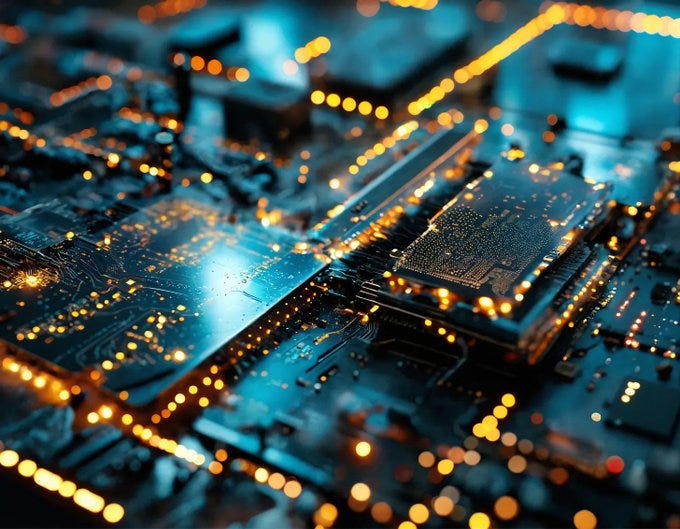The Future of AI Chips: A Revolutionary Leap Beyond Transistors
Written on
Chapter 1: Introduction to the Breakthrough AI Chip
The recent advancements in artificial intelligence are being propelled by a transformative new chip that promises to surpass traditional transistor technology. Supported by DARPA, this innovation aims to significantly enhance energy efficiency and computational capabilities, making AI more accessible and functional.
The Wall Street Journal noted that Nvidia has become only the third company to achieve a staggering $2 trillion valuation, with a considerable portion of its revenue arising from the sale of chips that facilitate post-training AI operations, known as inference. New studies conducted by a dedicated team of researchers indicate that this chip innovation is set to make a substantial impact on the deployment of AI systems in the near future.
As we look at the current landscape, state-of-the-art chips powering sophisticated models are often too bulky and inefficient for smaller devices. This limitation confines their usage predominantly to server racks and extensive data centers. However, with energy-efficient chips, the potential to deploy AI in a variety of environments—from laptops and mobile devices to hospitals, highways, and even low-Earth orbit—becomes a reality. This is where the new chip presents a significant opportunity for change.
Section 1.1: Collaboration with Princeton University
The Defense Department’s primary research entity has partnered with Princeton University to develop advanced microchips specifically designed for artificial intelligence applications. These state-of-the-art chips are engineered to operate powerful AI systems while consuming considerably less energy than existing semiconductor technologies, as highlighted by project lead Naveen Verma.

“There’s a pretty important limitation with the best AI available just being in the data center. You unlock it from that and the ways in which we can get value from AI, I think, explode.” ~ Naveen Verma, Project Lead
Section 1.2: DARPA's Support and Funding
Recently, DARPA announced its commitment to support Verma's initiatives with an impressive $18.6 million grant. This funding is part of DARPA’s broader strategy to invest in pioneering advancements in science, technology, and systems aimed at the future of AI computing. This initiative is known as OPTIMA and includes various projects across multiple universities and organizations.
Within this program, researchers from Princeton will collaborate with Verma's company, EnCharge AI, which operates out of Santa Clara, California. EnCharge AI focuses on commercializing technologies derived from Verma’s research, including foundational papers co-authored by electrical engineering graduate students since 2016. Verma co-founded the company in 2022 with Kailash Gopalakrishnan, a former IBM Fellow, and Echere Iroaga, a respected expert in semiconductor design.
Chapter 2: The Paradigm Shift in Computing
The first video titled "Nvidia's Breakthrough AI Chip Defies Physics" delves into how this chip is redefining the landscape of AI technology and the implications of its innovations.
The second video, "This chip will accelerate AI compute way past Moore's Law," explores the potential of this chip to push beyond traditional limits in computational power.
The fundamental architecture of nearly all digital computers has followed a straightforward model established in the 1940s, which separates data storage and computation. This separation necessitates the transfer of information between memory cells and the processor. Over the past decade, Verma has been pioneering research into a new paradigm called in-memory computing, where computation is performed directly within the memory cells, representing a significant shift.
Subsection 2.1: The Advantages of In-Memory Computing
The promise of in-memory computing lies in its ability to minimize the time and energy consumed during the transfer and processing of vast datasets. However, conventional digital methods have encountered notable challenges in achieving effective in-memory computing.
To overcome these hurdles, Verma and his team have pursued a different approach: analog computation. They have developed a technique for executing highly accurate computations using the analog signals generated by capacitors engineered to switch on and off with precision. Unlike traditional semiconductor devices, such as transistors, the electrical energy in capacitors is less affected by changing conditions like temperature and electron mobility. This innovation marks a significant milestone in the evolution of AI chip technology.
